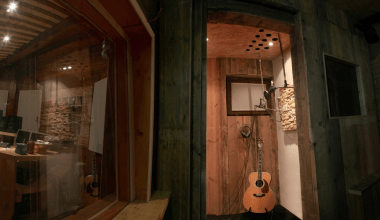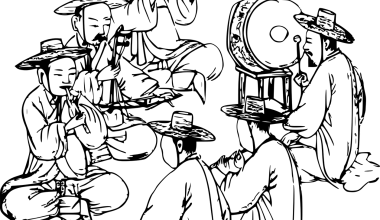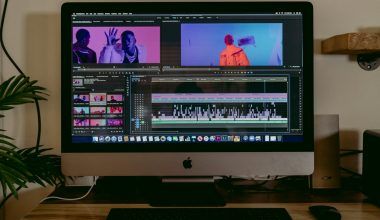Arabian tunes are a unique type of music that has been around for centuries. This music is not just about entertainment; it’s a way of telling stories, expressing emotions, and connecting with people. When you listen to an Arabian tune, you might feel like you are walking through a desert at sunset or sitting in a bustling market filled with life and colors. The sounds are magical, transporting you to another world.
This blog is about exploring the beautiful world of Arabian tunes – where they came from, the instruments that bring them to life, and how they continue to inspire music today.
The History of Arabian Tunes: Where It All Began
Arabian music has a long history. It started thousands of years ago in the Middle East, in places like Mesopotamia and the Arabian Peninsula. Back then, music was a way to tell stories and pass down traditions. People would sing songs about their lives, nature, and their dreams.
As trade routes grew, people from different regions met and shared their music. Arabian tunes were influenced by Persian, Greek, and Indian music, making them rich and diverse.
A Few Key Moments in History:
- Before Islam: Music was a big part of life, with poets and singers traveling to perform for tribes.
- Golden Age of Islam: During this time (8th to 13th century), Arabian music flourished. Cities like Baghdad and Damascus became hubs of learning and creativity.
- Modern Times: Arabian tunes are now a mix of traditional and modern sounds, heard in pop songs, movies, and even international collaborations.
What Makes Arabian Tunes Special?
Arabian tunes have some unique qualities that set them apart from other music styles.
1. The Maqam System
The maqam is like the “soul” of Arabian music. It’s a set of musical notes and rules that musicians follow to create a particular mood. For example:
- A happy maqam might be used for a wedding song.
- A sad maqam might be used to express longing or loss.
Each maqam has its own character, almost like a personality.
2. The Rhythm
Arabian tunes often have complex rhythms. These rhythms, called iqaat, can be fast and exciting or slow and calming. They add life to the music.
3. The Improvisation
Musicians playing Arabian tunes often improvise, which means they create parts of the music on the spot. This makes every performance unique and special.
Instruments of Arabian Tunes: Bringing the Music to Life
Arabian tunes wouldn’t be the same without their traditional instruments. Let’s look at some of the most famous ones:
1. The Oud
The oud is a pear-shaped instrument with strings. It’s often called the “grandfather” of the guitar. Its deep, rich sound is perfect for creating emotional melodies.
2. The Nay
The nay is a simple flute made of bamboo. It produces a soft, airy sound that feels almost magical.
3. The Qanun
The qanun is like a small harp or zither. It has many strings and can create beautiful, delicate tunes.
4. Percussion Instruments
Drums like the darbuka and riq give Arabian tunes their rhythmic energy. They are fun to play and even more fun to listen to!
Arabian Tunes Today: How They Have Evolved
Over time, Arabian tunes have changed while still keeping their essence. Modern artists mix traditional sounds with new styles like pop, jazz, and even electronic music.
Famous Modern Artists:
- Fairuz: A Lebanese singer whose music is loved by millions.
- Omar Souleyman: A Syrian artist who blends traditional music with electronic beats.
- Nancy Ajram: A pop star who uses Arabian melodies in her songs.
Today, you might hear Arabian tunes in unexpected places, like movie soundtracks or international music festivals.
Why Arabian Tunes Are Loved Around the World
Arabian tunes have crossed borders and inspired people worldwide. Here’s why they’re so special:
- Tell Stories: Every Arabian tune is like a little story, full of emotions and images.
- They Feel Timeless: These tunes have a way of connecting people, no matter where they come from.
- They Inspire Other Music: From Spanish flamenco to modern pop, Arabian music has left its mark on many styles.
How to Enjoy Arabian Tunes
If you’re new to Arabian music, here are some easy ways to explore it:
- Listen to Playlists: Apps like Spotify and YouTube have great collections of Arabian music.
- Watch Live Performances: Check out concerts or cultural festivals in your area.
- Learn an Instrument: Try playing the oud or the qanun. It’s a fun way to connect with the music.
Arabian Tunes and Spirituality
Did you know that Arabian music is also used for spiritual purposes? Sufi music, a type of Islamic devotional music, uses repetitive rhythms and melodies to create a sense of peace and connection with the divine. This shows how powerful and versatile Arabian tunes can be.(arabian tune)
Challenges in Preserving Arabian Tunes
Like many traditional art forms, Arabian tunes face challenges. Modern technology and globalization can sometimes overshadow these ancient melodies. But many musicians and cultural organizations are working hard to keep this music alive.
What We Can Do:
- Support Artists: Listen to and share the work of musicians keeping this tradition alive.
- Learn and Teach: Share the history and beauty of Arabian tunes with others.
Fun Facts About Arabian Tunes
- The oud is over 5,000 years old!
- Arabian music influenced flamenco in Spain.
- Many Arabian songs are based on poetry.
The Emotional Power of Arabian Tunes
What makes Arabian tunes so moving? It’s their ability to express emotions so clearly. Whether it’s joy, sadness, or love, you can feel it in the music. This connection is what makes Arabian tunes timeless.
Final Thoughts: Why Arabian Tunes Matter
Arabian tunes are more than just music – they’re a piece of history, a form of art, and a way of connecting people. Whether you’re listening to a traditional oud solo or a modern pop song inspired by Arabian melodies, you’re experiencing something truly special.(arabian tune)
So, take a moment to explore the world of Arabian tunes. Let the music take you on a journey through time, culture, and emotion. You might just fall in love with their timeless beauty.
Related Articles:
For further reading, explore these related articles:
- How to Become a Successful Music Artist in India in 2024?
- Promo Cards on Spotify: A Game Changer for Artists
For additional resources on music marketing and distribution, visit Deliver My Tune.






